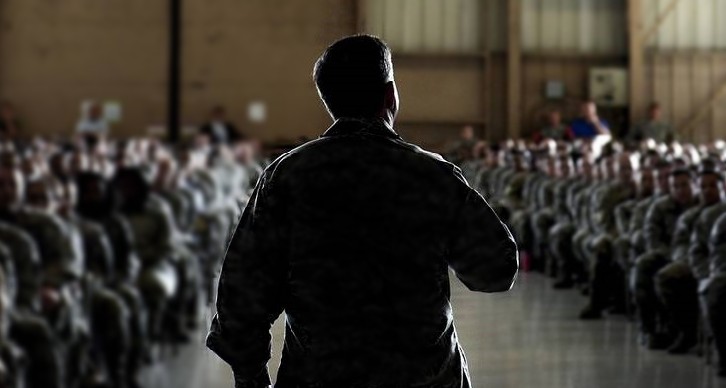Social Media Leader’s Guide
Senior Leaders

Social Media and Soldiers
Understand how soldiers should conduct themselves online and on social media.
Remember:
Training and Doctrine Command views social media sites positively, and respects your rights as Soldiers to use them to express yourself. That acknowledged, by the nature of your profession, you are always on the record and you represent our core values. You are a Soldier 24-hours a day and 365 days a year. Even if you state you are not representing the US Army, you can be perceived as doing so because you are a Soldier. What happens online stays online and can have real-world impacts in the moment and years after.
When you’re online, you’re in public — so act like it. Don’t do or say anything online you wouldn’t do or say in public. Keep relationships and personal life private. Treat everyone online how you’d like to be treated. The “Golden Rule” applies even online.
There’s no such thing as complete anonymity online. “My user name is B@ArmyLife, no one will figure out who I am.” Wrong. The people you know will recognize you. Google, Amazon, and other online services designed to capture your online habits to optimize your experience may recognize you.
Before you hit send, stop and think. The things you say matter. Images can be taken out of context. Cool off before responding to messages in anger. You’ll never agree with everyone online. Respect others’ opinions. Anyone, anywhere could see what you post.
The Internet doesn’t forget. It’s very easy for bad actors to save a screenshot, download an image, or do something else to make sure a moment online lasts an eternity. Anything shared online, although intended to be private and confidential, has the possibility to become public — if it’s best left unsaid, don’t say it. If you don’t want it shared, don’t post it.
Protect your privacy and your friends’ privacy too by not sharing without their permission. Unless you’re prepared to attach that post, text, or photo to your next college application, security clearance package, or resume, again, stop and think before you post.
Anything posted on the internet is permanent. Through the use of publicly available online tools, data can be recovered and used against you.